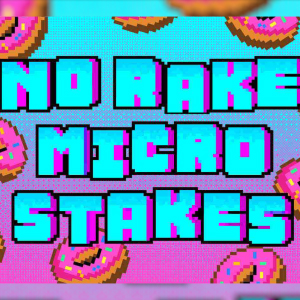US Poker: The Online Battle for New Jersey
9 years ago

11 May
Having grown up in NJ just an hour’s drive southbound from Atlantic City on the Parkway, I’m always keeping one eye on what’s going on with the poker scene in the Garden State. So, when it became official that NJ would be the spot for PokerStars' triumphant return to the US market, I couldn’t have been more excited.
Although in fairness, I don’t know how any fan of poker could not have been excited for this. The hype leading up to the launch was intense.
For the poker community, the silent hope was that the re-launch would bring the shift that we have all been waiting for in a post- Black Friday world. PokerStars would put online poker back on the map in the United States. It would prove not only online poker’s popularity but, more importantly, its viability as a tax and revenue stream for governments and corporations alike.
Now that the euphoria of initial expectations has calmed down, we can start to examine what the effect of PokerStars’ entry into the US market actually looks like.

Remember: PokerStars had a lot of advantages coming into the market
Prior to the launch, the prevailing wisdom was that PokerStars would run away with the market, and there were several good reasons for believing that. Even after Black Friday, PokerStars’ brand recognition remained very strong within the US market, and NJ in particular.
For starters, the company came out as the small silver lining from Black Friday. PokerStars kept player funds segregated and paid out quickly after the shutdown, something that even those who left the game afterwards haven’t forgotten.
Another factor was the large amount of free press PokerStars got as the company battled within the NJ state legislature for a license to operate. It was a sexy story, and the local press tied it into the larger, well-known narrative in NJ about the struggle to reverse the failing fortunes of Atlantic City casinos. The idea here being that PokerStars, in addition to putting down some brick-and-mortar venues, would complement the poker scene with its incredibly popular mobile casino offerings.
These things only added to the sure-fire bet that the existing competition just wouldn’t be able to keep up with the onslaught of the PokerStars juggernaut. Which is exactly why what happened - or rather, what didn’t happen - next was so shocking to almost everyone.

PokerStars is leading the market, but it has NOT eliminated the competition
As predicted, PokerStars easily captured market shares from competitors Borgata/PartyPoker and WSOP/888 from the moment it went live. By the end of March - barely two weeks into its launch - it was already NJ’s leading site for online poker cash games.
But then, defying all the predictions and prognostications, the unthinkable happened… PokerStars’ dominance plateaued. As time rolled through April and into the start of May, not only has the world’s largest poker site failed to put the existence of other operators in serious jeopardy, it hasn’t even managed to score over 50% market share.
Instead, ‘Stars has hovered around 40% market share. For any other operator entering the market for the US market for the first time, this would be an impressive feat, but for PokerStars, all it’s doing is raising questions about why the knockout blow many anticipated hasn’t come to fruition.

What does this mean for US Online Poker?
Some of the biggest question marks surrounding PokerStars’ inability to corner the NJ market is what it will mean for the legislative battles currently going on in other states.
State legislatures around the nation should be taking note of the ability of the tiny New Jersey market to support three online poker sites. I believe this proves that online poker is a viable product for casinos, and can be counted on as a reliable source of state tax revenue. And, if meaningful levels of shared liquidity amongst states were ever allowed to happen, the windfall for state treasuries could become significant.
In California specifically, the news that the PokerStarsAgeddon never materialized will be extremely welcome news for players. Efforts to legalize online poker have stalled in the state time and again because gambling interests not aligned with PokerStars fear getting frozen out of the market. Seeing that the money pie is large enough for everyone to get a slice should go a long way towards finally completing an acceptable deal.

Who will win the online poker battle of NJ?
PokerStars may have failed to eradicate online poker competition in the state, but that doesn’t change the fact that there is a clear winner in the battle for NJ - the players.
No one knows exactly what the future will bring. Any operator could ultimately come out on top with the biggest market share. Will it remain a virtual three-way tie? Only time will tell. However, at this point, I think it’s safe to say that the prediction that we might see Borgata/PartyPoker and 888/WSOP disappear almost overnight was clearly - and thankfully - completely wrong.

What makes this renewed sense of competition so exciting is that it’s exactly what is needed to ensure a healthy market. By failing to land the deathblow against competitors right from the start, PokerStars has breathed new life into the viability of online poker in the United States. As long as the online proprietors compete to offer the best deals, the players win.
We can now all legitimately hope to see more investment in the places where the industry is currently operating, a heightened sense of urgency from legislators to pass new regulation opening up new markets, and an increase in momentum towards bringing the game back to it’s pre-Black Friday popularity levels amongst the broader public.






Comments
You need to be logged in to post a new comment